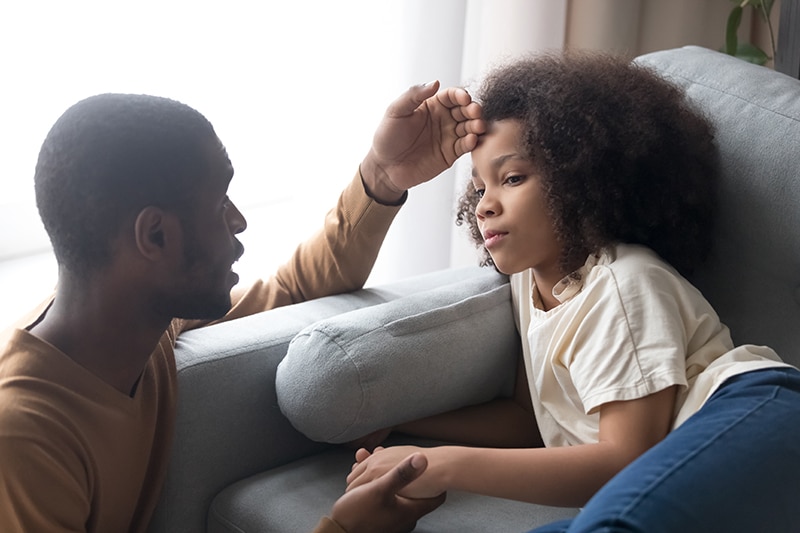It’s 7:30 in the morning. Coffee in one hand, keys in the other. You’re ready to head out the door when you hear, “I’m sick.” Yep, your little one has a warm forehead and sniffles. Should he or she stay home today?
The American Academy of Pediatrics recommends that children don’t attend school or childcare if:
- Their illness keeps them from participating comfortably in activities
- Their illness requires a level of care teachers or childcare providers are unable to provide
- Their illness could be contagious
“For most common cold viruses, you are contagious as long as you have symptoms, at minimum one week but up to two,” says Christine Liu, MD, family medicine physician on the medical staff at Methodist Richardson Medical Center. Dr. Liu says if your child has a cold or a cough, he or she is likely well enough to attend school or childcare, as long as there’s no fever.
If your child does have a fever but otherwise feels fine, check with your school or childcare center’s policy. Some places require children to wait at least 24 hours after a fever has broken without the use of medicine or after they have vomited before returning to school or childcare.
Keep ‘em at home
Children who appear severely ill and have the following symptoms should always stay home from school or daycare:
- vomiting
- diarrhea
- a rash with a fever
If your child experiences any of these signs of illness, contact his or her pediatrician.
Vacc to school
Teenagers who recently started college should be up to date on all of their vaccines. Living in close quarters in dorm rooms can allow germs, particularly cold and flu germs, to spread more easily.
Every college student should get an annual flu vaccine, and parents should make sure teenagers have also received both doses of the meningococcal vaccine. This vaccine protects against meningococcal disease, which can turn into meningitis, inflammation of the tissue surrounding the brain and spinal cord. People between ages 15 and 21, and those who live in close quarters are particularly vulnerable to this disease.
“Children should receive the first dose of the 4-strain meningococcal vaccine at ages 11 or 12, then a booster at age 16. If your child is older than 16, he or she may need just one 4-strain meningococcal shot up to age 23,” Dr. Liu says. “There is also a Meningitis B shot for the strain that, though rare, causes most of the bacterial meningitis deaths. This is a separate Meningitis B shot, given in 2 doses. The recommended ages to be given is 16 to 18, but up to 23 years old. This has historically been considered optional, but is highly recommended.”
Read about what to do when a cough is more than a cough.

